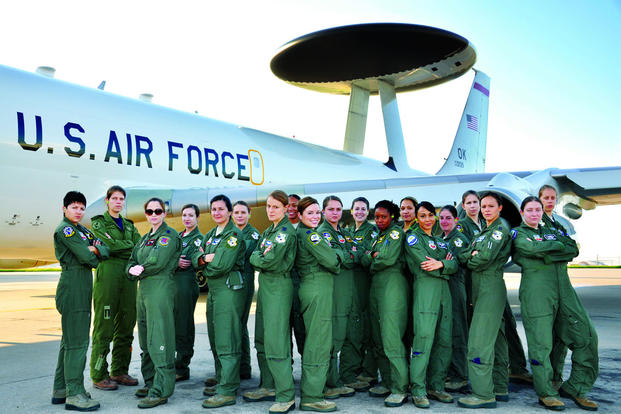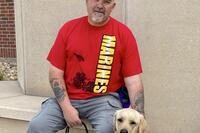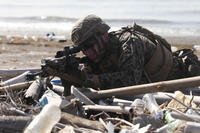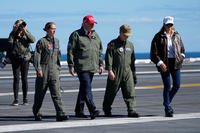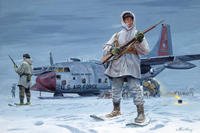Preliminary tests show female airmen can perform many of the same battlefield tasks as their male counterparts in Special Operations positions, a general said.
The Air Force ran a series of tests involving 170 airmen, including about 70 women, between May and July at Joint Base San Antonio-Lackland, Texas, to predict how they would perform on a series of physical tasks required on the battlefield and for Special Operations jobs, according to Brig. Gen. Brian Kelly, the service's director of military force management policy.
"In lots of cases, they were able to compete and stay up with the men," Kelly said on Tuesday during a briefing with reporters at the annual Air and Space Conference held outside Washington, D.C. He later confirmed they did so most of the time.
"There were some tasks and places where they would say had they known that that was the task and had they the ability to train to that over time they were pretty comfortable that they would be able to do that over time," he said. "They may have struggled that particular day because their job is maybe a desk job and they weren't able to do 100 pull-ups or whatever they were doing in that regard.
"But there was confidence that if they really had a desire to do that career field, and had the ability to train to it, the test subjects all thought that they would be able to accomplish the task and be successful," he added.
The findings -- which have been submitted to Air Force Secretary Deborah Lee James as she considers lifting restrictions on women serving in direct-action combat jobs -- will likely raise questions about a recent Marine Corps study that found female Marines struggled to perform some infantry tasks and were more likely to be injured on the job than their male peers.
The service secretaries have until the end of the month to make recommendations to Defense Secretary Ashton Carter on whether to open direct-action combat jobs such as infantry to women. Under a 2013 directive from then-Defense Secretary Leon Panetta, the military services must open all combat jobs to women by next year or explain why any must stay closed.
James has already signaled that she intends to open the remaining Air Force jobs closed to women.
"I don't see any barriers to opening up those remaining career fields" that are still closed to women so long as gender-neutral standards are kept in place, she said on Monday to applause from the audience at the conference, which is being held this week in National Harbor, Maryland, by the Air Force Association.
Her comments came a month after Army Capt. Kristen Griest and 1st Lt. Shaye Haver made history by becoming the first women to graduate from the Army Ranger School and earn the coveted Ranger Tab.
The vast majority -- upwards of 99 percent -- of the Air Force's military occupational specialties are already open to women, Kelly said. "They Air Force had a shorter distance to go" than the other services, he said.
Indeed, there are just six MOSs -- all in Special Operations -- with about 4,000 positions currently closed to female airmen, Kelly said. They include two officer specialties (special tactics officer and combat rescue officer) and four enlisted specialties (combat controller, pararescue, special operations weather and tactical air control party, or TAC-P), he said.
The Air Force conducted the gender-integrated tests at San Antonio because they didn't have enough time to enroll women into the training pipeline for Special Operations career fields, a process that can last two to three years, and wanted to develop a predictive model for performance, Kelly said. Tasks included two-man teams carrying a litter up a helicopter ramp, he said.
"We know what the weights of those are and how steep that ramp is," he said. "Those operational tasks became the standard for our study.
"When you use those as your standards and say these are the things that have to be accomplished that we know directly tie to the operational requirement on the battlefield, that's when you can say, 'A standard is a standard,'" Kelly said. "It doesn't matter what your gender is or who you are, as long as you can perform that standard."
--Brendan McGarry can be reached at Brendan McGarry@military.com.
